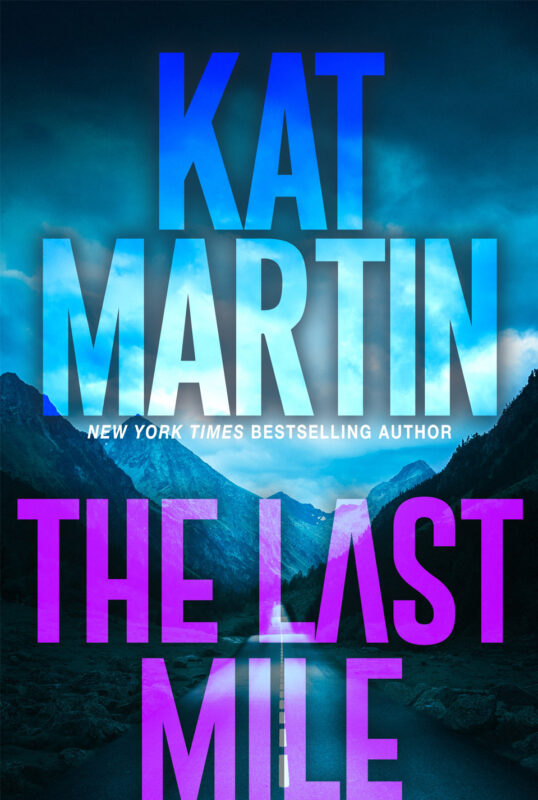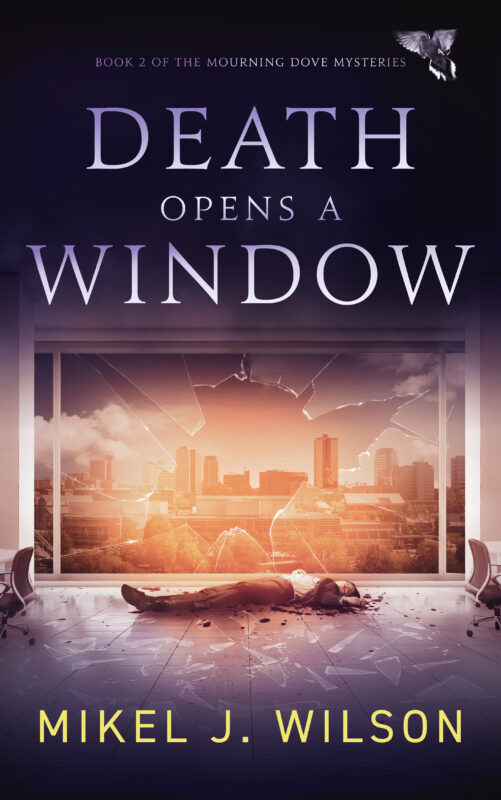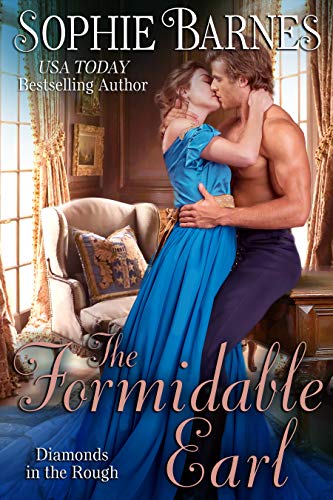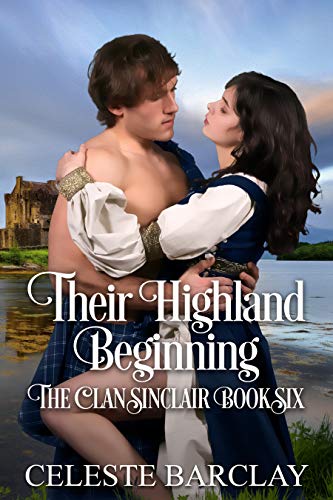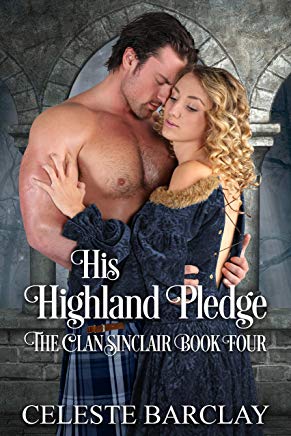IS THERE A DIFFERENCE?
February 5, 2015 by Tracy Reed in category Pink Pad by Tracy Reed tagged as Christian Fiction, Edgy Christian Fiction, Faith based books, Generational Curse, Inspirational fiction, Tracy ReedI want to talk about the preconceived notions people have about Christian, Inspirational or Faith based books. When someone hears a story has one of the three aforementioned tones, they immediately shut down thinking the story is going to be sweeter than cotton candy dipped in chocolate and covered with gum drops.
There’s CIF [Christian, Inspirational, Faith] fiction that falls into that description and there’s nothing wrong with it. It’s written extremely well and packs a message for the reader. However, it’s the misconception that all CIF books are like that which provokes a closed mind to experiencing some really great stories. [I swear I’m not preaching.]
When I decided to start writing, I’d dabbled a little in high school and college. Even so far as to writing a couple of plays. I found them later and felt they’d be a good base for a barbecue fire. When I read them again, I realized, although they were poorly written, they had a few things in common. The characters were all Christians but in real life situations. Let me explain. In a lot of CIF books, the story centers around the church with conflict between the pastor, the board, the choir director, pastor’s family and some evil person not affiliated with the church. There’s nothing wrong with those books. I’ve read a few and like them, however, they weren’t the kinds of stories I wanted to tell.
I have always loved God, fashion and cute guys. I liked “The Devil Wears Prada,†“Bergdorf Blondes,†“Elements of Style†and “The Debutante Divorcee.†These were characters I could relate to. The books are filled with the most incredible fashion and very handsome men. The only thing they didn’t have was a faith based theme. It was reading these books that it occurred to me, why not write a book with similar content, but add a little CIF to it.
My first attempt at writing a book sounded very much like ChickLit. I was fine with it until my beta readers ripped it to shreds. After a lot of re-writes, I finally had a book I was pleased with. Problem was, it wasn’t considered acceptable. Why not? Response, Christians don’t act like that, Christians don’t care about designer clothes, Christians are happy being upper middle class at best, Christians don’t get challenged, tempted, have racy dreams or wicked thoughts, Christians only have sex for procreation and on special occasions. And there is no way a Christian would get divorced, commit adultery, fornicate, swear, drink wine or dance.
Needless to say, I was stunned at the comments because I know a lot of Christians that have experienced and or faced a few of those things. So I set out to write books for “my people.â€
It ticks me off when I hear people say no one will read books about Christians [or people of other religious beliefs] in real life situations. I want to read about “my people†dating, regretting, marrying, divorcing, falling in love, wearing designer clothes, traveling and being pursued by wealthy men. I don’t want my heroine to be naive and deceived by an evil protagonist whose only objective is to steal her virginity or corrupt her. What about the sexy, fun Christian girl who works hard and falls for her boss, or divorces her cheating husband or who used to be a little slutty and is now in love with God struggling not to slip back into her old ways. These are great stories and if they’re written well, you can take the CIF elements out and they’ll still be great stories.
My next book is a take on Sex And The City. It’s five successful women all searching for love while wearing amazing clothes. I hear you saying that’s not possible because that book was all about sex. Not really, the core of that book was friendship. Sex was just one of the supporting characters, much like the clothes, men and New York.
I think it’s a little more challenging to write a CIF book because you have to determine how far is too far. Although I want my books to have a little heat, I’m very careful about crossing the line. I want my kissing scenes to be as passionate as those found in traditional romance. Although most of my characters are Christians, I don’t want their passion or desire to be watered down. I have chosen to share my characters thoughts. If my heroine finds the protagonist hot, she’s going to say so. And if he’s having a lustful thought, I want you to read it. These little nuances make the characters feel real…just like in traditional romance.
So back to the original question, IS THERE A DIFFERENCE? Not really, just different levels of intensity.
The Santa Shop Entertains & Inspires
December 15, 2011 by A Slice of Orange in category Archives tagged as Christmas, Inspirational fiction, writing craftThis morning (Sunday) I was supposed to work on my new book – the one I intend to complete for a December release. Instead, I snuggled down in my warm bed and finished an e-book called The Santa Shop (The Santa Conspiracy) by Tim Greaton.
So, on this chilly Sunday morning, I want to thank Tim Greaton for reminding me of the very simple lessons to creating a good book:
1) Have a story, not an idea.
2) Know your character, not just his or her name.
3) Write as if you are pointing the way not giving directions.
4) Stop when the story is told.
Thanks, Tim, for the gift of The Santa Shop.
0 0 Read more
MY MAN JACK: Lessons Learned from LaLanne
January 25, 2011 by Rebecca Forster in category The Write Life by Rebecca Forster tagged as Adventures in Writing, creativity, grandparents, Inspirational fiction, mentor, Rebecca Forster, writing processWhen I was eight years old I spent the night with my grandmother, a handsome woman who, as I look back, was probably younger than I am today but looked 10 years older. She was a German lady who wore housedresses and pin-curled her grey hair. She was proper, punctual and particular but when I woke up the morning of our sleepover, I found her holding onto the back of a chair, shoeless and enthralled by the man on the television. His name was Jack Lalanne.
Jack held onto the back of a chair, too, but he wore a skin-tight jumpsuit that showed off his muscles – all of them. I had never seen a man dressed like that. Even at eight, I knew I was watching something extraordinary – maybe even a little naughty. Watching my grandmother lift her leg ever so slightly, put her arm over her head like a ballerina, bend from the waist so that I could actually see the backs of her knees was awesome. Grandpa was gone. The doors were locked. The only sound was Jack’s voice encouraging my grandmother to do things I never thought she could do. I was privy to something I had no word for and I never told anyone about grandma’s morning with Jack.
Almost twenty years later, I met Jack Lalanne for real. I was an account executive with a major advertising agency and Jack LaLanne Health Spa was my client. Though I didn’t know it then, I was working on an account that was the forerunner of a social and health phenomena of fitness clubs, spas and specialty gyms. Before 24 Hour Fitness, Equinox or day spas there was Jack Lalanne.
We met during a commercial shoot. My job was to make sure we stayed on budget, on schedule, on message and that the client was happy. To this day, I don’t know if the client was happy. Jack, dressed in his iconic black jumpsuit, stood apart and managed only a distracted hello.
He was perpetual motion as he waited for his call: flexing, stretching, moving. And, most interestingly, he talked to himself. Eventually, I realized he was rehearsing his line. He only had one but the man was nervous and that made me curious.
How could a man who inspired my grandmother to take off her shoes and exercise, a man who spoke to people on TV every day be nervous about delivering one line? It took me many years and my own journey as a writer to understand why, that day on the set, Jack LaLanne was sweating. It was because he was not a pitchman, he was an advocate. Jack LaLanne sold best when he sold in his own language and with his own message. That man not only inspired people to exercise but to be their best in every aspect of their lives.
A few days ago, I woke up and found that Jack LaLanne had passed away. I doubt he would have remembered me but I will always remember him. I will remember him as a part of my childhood but I will also remember what he taught me about being a creative person. So, here you go. The lessons I learned from Jack.
Write, compose, draw, speak, work with love and focus.
Always exercise: your mind, your imagination, your skill.
Be consistent. Be a brand. Craft your own “black jumpsuit” so that when people pick up your book or see your picture or hear your song they will know what they’re getting.
Plan your career, do not calculate it. Eventually, calculation will override passion and you will lose your “voice”.
Do not worry about how many people read your work. Creating something that is meaningful to one person is more important than having thousands know your name but not remember your work.
Share your passion. If you have a chance to inspire, to coach, to encourage, do it. Do it with abandon. Do it with energy. Do it without concern that sharing your knowledge will take something away from you. It won’t.
Thank you Jack. I was inspired by your energy, your abandon and your goodwill. I will pay it forward and, when I do, I will think of you.
0 0 Read more5 Tips to Writing Fiction that I learned from writing kids’ cartoons for TV by Jina Bacarr
April 11, 2010 by A Slice of Orange in category Archives tagged as cartoons, Confessions of a Podcast Goddess, Inspirational fiction, TV, writing processWhen I was preparing for a teleconference with author Heidi Richards for her publishing series about writing fiction, I thought about my early days in TV and the valuable lessons that I learned from writing scripts.
I discussed this topic in depth with Heidi in the teleconference, but I’ve included my 5 tips for writing fiction for you at the end of this blog. But first–
How did I start writing sexy fiction?
When I wrote a monthly column for a computer magazine called Sweet Savage Byte, who knew years later mainstream would meet bitstream, making e-books (including sexy fiction) available at the click of a mouse. The Internet’s easy access and anonymity made it all possible.
It also gave the opportunity for so many writers to bring out those stories from underneath their beds and see their works published.
My sexy coming-of-age story “The Blonde Geisha“ was published by Harlequin Spice during that time. That novel was followed by several other titles that I’ve written for Spice as well as a non-fiction book for Stone Bridge Press, “The Japanese Art of Sex: how to tease, seduce and pleasure the samurai in your bedroom.”
Here is the short version of my 5 Tips for writing fiction that I learned from writing kids’ cartoons for TV:
1. Beat It: know your story beats
2. You gotta have heart. What is your emotional theme?
3. Dialogue is king (or queen).
4. The white rabbit syndrome: getting into the scene as late as you can and out as quickly as you can.
5. Writing is rewriting.
So the next time you sit down to watch your favorite TV show, watch it with the eye of a television writer: note the story beats, boil down the emotional core of the story to one or two words, listen to the dialogue, watch how they get in and out of a scene, then press rewind and watch it again.
And don’t forget the most important tip of all when you write your story: let your imagination soar.
It’s the magic that makes the elephant fly.
The Blonde Samurai
“She embraced the way of the warrior. Two swords. Two loves.â€
Wishing you a very Happy Holidays…And taking the opportunity to present Joan Marlow Golan, Executive Editor
December 24, 2008 by A Slice of Orange in category Archives tagged as Harlequin, Inspirational fiction, Isabel Swift, Joan Marlow Golan, Steeple HillI wanted to take the opportunity to introduce you to a remarkable woman: Joan Marlow Golan, Executive Editor, Steeple Hill Books. It’s the season to be thankful for our many gifts, and I consider Joan one of them. Here’s Joan!
“As Executive Editor of Steeple Hill, I manage Harlequin’s inspirational books imprint, with an editorial staff of five in addition to myself. The Steeple Hill imprint consists of three original series, Steeple Hill Love Inspired ®, Steeple Hill Love Inspired Suspense ® and Steeple Hill Love Inspired Historical ®–LIH will be launching this February–as well as a single title program that includes Steeple Hill Women’s Fiction and Steeple Hill Cafe®.
“The greatest asset at Steeple Hill is our authors. Steeple Hill authors have won the highest awards in inspirational publishing, the Christy Award and the RITA® Award, as well as myriad prestigious awards from the American Christian Fiction Writers, various regional RWA awards and other honors. Our books have been featured in the media, including The New York Times, USA Today and on The Today Show and even Jon Stewart’s The Daily Show!
“In addition to managing the imprint, I am the proud editor of Steeple Hill authors Hannah Alexander, Judy Baer, Vanessa Del Fabbro, Annie Jones, Catherine Palmer and Janet Tronstad as well as HQN New York Times bestselling author Linda Lael Miller and radio personality Delilah, with whom I’m developing non-fiction titles for Harlequin’s new non-fiction program. Her first title, Love Matters, is out right now.
Q: What is your work history?
A: I’ve celebrated my 10th anniversary at Harlequin—in some ways I feel as if I’ve been here forever, because it’s such a good fit, it feels like “home.†My first job here was as Senior Editor of Silhouette Romance, and then I became Senior Editor of Silhouette Desire. In 2003, I was asked to manage the Steeple Hill imprint, of which I’m currently Executive Editor.
“I began my publishing career in 1979. I’d spent six years getting a doctorate in English and American Literature from Harvard University and was a diehard bookaholic. When I realized that there was a job that involved actually getting paid for reading books, I knew that was the job for me. I was determined to break into publishing despite being told by many that I was “overqualified and underexperienced†for an entry-level job.
“Ultimately, my entrée into the industry was as a Book of the Month Club reader. It took me three months to get that position—I kept calling the BOMC Editor-in-Chief, Al Silverman, and since I knew he was a Yankees fan would chat with him about Reggie Jackson, Billy Martin and company, and every month he’d tell me he wasn’t hiring but to call him back next month.
“My first full-time job was as a nonfiction editor at now-defunct Hart Publishing Company, where I edited the bestseller THE 100: A Ranking of the Most Influential Persons in History by Michael Hart, which has spawned many imitators. I went on to fiction, and then I discovered romance publishing—it was love at first sight, and for most of my publishing career I’ve been a romance editor.
“I began my romance publishing career with Richard Gallen, a packager, and then became an editor at Berkley’s Second Chance at Love line, which I eventually managed. When my daughter was a toddler, I decided corporate life wasn’t sufficiently family friendly and mommy-tracked myself for seven years, continuing to freelance.
“Working at home eventually got lonely, but I still wasn’t ready to reenter corporate life, so I got into religious publishing as an editor for Catholic publisher Liguori Publications. After four years, Liguori decided to close their New York office, and by that time I was ready to come back to the corporate world—and Harlequin was ready for me. My friends think I have the dream job . . . and I’m inclined to agree! I especially value the warm relationships built up over years of working together, both in the author/agent community and with Harlequin colleagues.
Q: What are you looking for in submissions?
A: Please note that while we accept all submissions for Steeple Hill series, we do not accept unsolicited manuscripts for the single title program, which includes Steeple Hill Cafe®. As an editor I look for:
– Characters I care about
– A compelling, distinctive author voice
– A story that hooks me with the first sentence and won’t let me put it down.
Q: Do you have any advice for writers for Steeple Hill?
A: Yes.
– Please read our guidelines before submitting to Steeple Hill:
Steeple Hill Love Inspired
Steeple Hill Love Inspired Suspense
Steeple Hill Love Inspired Historical
Steeple Hill Women’s Fiction
Steeple Hill Cafe
You will also find them on eHarlequin.com—scroll to the bottom of the homepage and click on Writing Guidelines.
– Remember that Jesus got His points across by telling wonderful stories and do likewise.
– Keep in mind that if you do not interest an editor on page one, they aren’t going to read much more (if the editor is me, I am not going to read any more).
– Try to read your work not like an author but like a consumer who has picked it up in the bookstore and is sampling to decide whether or not to buy it.
– The best way to endear yourself to your editor is to deliver your mss. on time.
Q: What are your favorite childhood novels?
A: My all-time favorite novel, which I reread every few years, is LITTLE WOMEN. I also consider it the ur-inspirational novel—not only are many of the chapters named after elements from John Bunyan’s Christian classic PILGRIM’S PROGRESS, but the four March sisters each make an inner pilgrimage to spiritual enlightenment and each finds her mission.
It’s also a very well-written book with a dynamite first line—“’Christmas won’t be Christmas without any presents,’ †grumbled Jo, lying on the rug.â€
At various times in my life I’ve identified with each of the sisters, but now I identify most with Marmee—who is a great role model for me as a manager. I have to admit, for me life doesn’t get any better than lying in bed rereading LITTLE WOMEN—I find the March family endlessly fascinating, not to mention never having gotten over my childhood crush on boy-next-door Laurie.
– Another book I adored as a child and is back in print again today is HALF MAGIC by Edgar Eager. Four children, whose widowed mom works so that they are often left to their own devices, find a magic coin that grants wishes—but only by halves. This leads to some terrific adventures and profound life lessons for all of the children. What I really love about this book is the author’s voice. I used to read HALF MAGIC to children I babysat for and they all loved it, too, as did my own kids. I enjoyed it just as much rereading it as an adult. If you’ve never read it, treat yourself!
– Both of these beloved books have great dialog. Dialog is really important in making a novel work—it can provide sparkle, humor, reveal character and fill in the backstory as well as making the pace sufficiently brisk that the reader doesn’t get bored.
Q: Is being an editor what you imagined when you first decided to become one?
A: Actually, not so much. I thought all editors did was read and edit! So what do I do besides read and edit? I participate in a lot of meetings and spend untold hours responding to and generating email, and using my computer, with which I have a love-hate relationship. I also talk on the phone, which I still prefer to email for a real discussion (I respond to the human voice and tend to “hear†books as I read them).
Q: Is there any activity you prefer to reading?
A: I do enjoy other forms of entertainment and am particularly passionate about opera and theater. In the years since my husband died, I have become an avid gardener as well, and planted over 400 bulbs this fall so that I will have “Little Amsterdam†in front of my house in the spring. I enjoy traveling and spent a memorable week in Rome, Italy last year. I also take a Qi Gong class, meditate, and say the Chaplet to the Divine Mercy, the prayer I feel especially called to, every day, and I’m a lector at my church.
But to answer the question, no, nothing does it for me like a good book—and I founded a bookclub in my community that has been meeting for over a decade! I especially enjoy poetry and biography in addition to fiction, with Linda Pastan and Mary Oliver my two favorite contemporary poets at the moment.
My favorite quote is by Logan Pearsall Smith: “People say that life is the thing, but I prefer reading.†Amen!
May visions of sugar plums dance in your head….
0 0 Read moreAffiliate Links
A Slice of Orange is an affiliate with some of the booksellers listed on this website, including Barnes & Nobel, Books A Million, iBooks, Kobo, and Smashwords. This means A Slice of Orange may earn a small advertising fee from sales made through the links used on this website. There are reminders of these affiliate links on the pages for individual books.
Search A Slice of Orange
Find a Column
Archives
Featured Books
THE LAST MILE
A novel of taut suspense and danger from New York Times bestselling author Kat Martin.
More info →THE FORMIDABLE EARL
He's breaking the rules for one woman, and coming dangerously close to falling in love…
More info →Newsletter
Contributing Authors
Search A Slice of Orange
Find a Column
Archives
Authors in the Bookstore
- A. E. Decker
- A. J. Scudiere
- A.J. Sidransky
- Abby Collette
- Alanna Lucus
- Albert Marrin
- Alice Duncan
- Alina K. Field
- Alison Green Myers
- Andi Lawrencovna
- Andrew C Raiford
- Angela Pryce
- Aviva Vaughn
- Barbara Ankrum
- Bethlehem Writers Group, LLC
- Carol L. Wright
- Celeste Barclay
- Christina Alexandra
- Christopher D. Ochs
- Claire Davon
- Claire Naden
- Courtnee Turner Hoyle
- Courtney Annicchiarico
- D. Lieber
- Daniel V. Meier Jr.
- Debra Dixon
- Debra H. Goldstein
- Debra Holland
- Dee Ann Palmer
- Denise M. Colby
- Diane Benefiel
- Diane Sismour
- Dianna Sinovic
- DT Krippene
- E.B. Dawson
- Emilie Dallaire
- Emily Brightwell
- Emily PW Murphy
- Fae Rowen
- Faith L. Justice
- Frances Amati
- Geralyn Corcillo
- Glynnis Campbell
- Greg Jolley
- H. O. Charles
- Jaclyn Roché
- Jacqueline Diamond
- Janet Lynn and Will Zeilinger
- Jaya Mehta
- Jeannine Atkins
- Jeff Baird
- Jenna Barwin
- Jenne Kern
- Jennifer D. Bokal
- Jennifer Lyon
- Jerome W. McFadden
- Jill Piscitello
- Jina Bacarr
- Jo A. Hiestand
- Jodi Bogert
- Jolina Petersheim
- Jonathan Maberry
- Joy Allyson
- Judy Duarte
- Justin Murphy
- Justine Davis
- Kat Martin
- Kidd Wadsworth
- Kitty Bucholtz
- Kristy Tate
- Larry Deibert
- Larry Hamilton
- Laura Drake
- Laurie Stevens
- Leslie Knowles
- Li-Ying Lundquist
- Linda Carroll-Bradd
- Linda Lappin
- Linda McLaughlin
- Linda O. Johnston
- Lisa Preston
- Lolo Paige
- Loran Holt
- Lynette M. Burrows
- Lyssa Kay Adams
- Madeline Ash
- Margarita Engle
- Marguerite Quantaine
- Marianne H. Donley
- Mary Castillo
- Maureen Klovers
- Megan Haskell
- Melanie Waterbury
- Melisa Rivero
- Melissa Chambers
- Melodie Winawer
- Meriam Wilhelm
- Mikel J. Wilson
- Mindy Neff
- Monica McCabe
- Nancy Brashear
- Neetu Malik
- Nikki Prince
- Once Upon Anthologies
- Paula Gail Benson
- Penny Reid
- Peter J Barbour
- Priscilla Oliveras
- R. H. Kohno
- Rachel Hailey
- Ralph Hieb
- Ramcy Diek
- Ransom Stephens
- Rebecca Forster
- Renae Wrich
- Roxy Matthews
- Ryder Hunte Clancy
- Sally Paradysz
- Sheila Colón-Bagley
- Simone de Muñoz
- Sophie Barnes
- Susan Kaye Quinn
- Susan Lynn Meyer
- Susan Squires
- T. D. Fox
- Tara C. Allred
- Tara Lain
- Tari Lynn Jewett
- Terri Osburn
- Tracy Reed
- Vera Jane Cook
- Vicki Crum
- Writing Something Romantic
Affiliate Links
A Slice of Orange is an affiliate with some of the booksellers listed on this website, including Barnes & Nobel, Books A Million, iBooks, Kobo, and Smashwords. This means A Slice of Orange may earn a small advertising fee from sales made through the links used on this website. There are reminders of these affiliate links on the pages for individual books.








